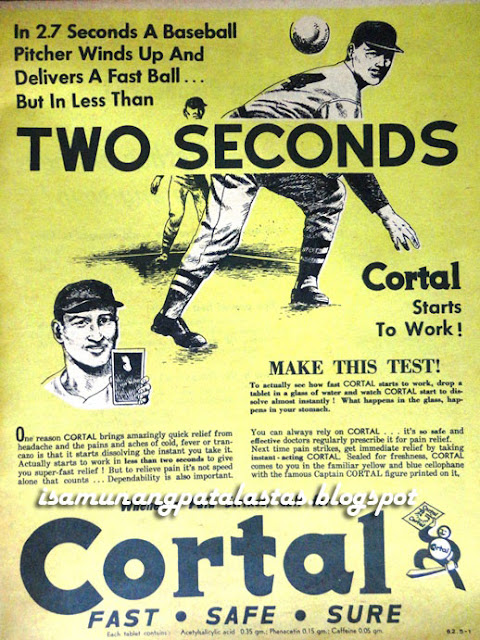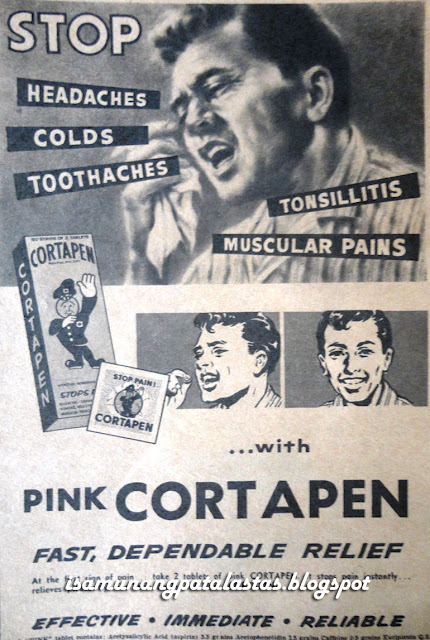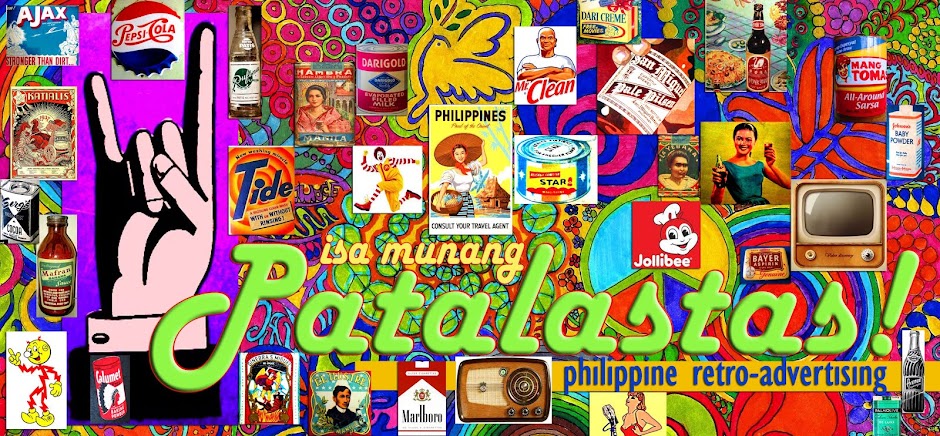 |
| CORTAL 1959 MAGAZINE AD |
CORTAL, was introduced in the early 50s as a revolutionary fever, colds and pain reliever. Cortal was basically an aspirin-based medication that has two more active ingredients that work synergistically to fight fever and pain, safely and quickly.
Widely advertised and easily available, Cortal tablets became the most popular medicine for the relief of headache, fever, and colds—easing out other available medications like the U.S.made-Bayer. Even with the rise of another competitive brand, Cafiaspirina, Cortal’s market lead was insurmountable.
As expected, other minor players in the analgesic market capitalized on Cortal’s success. In an age where there was no advertising board to police unfair advertising ng practices, another pain relief brand unabashedly copied Cortal’s winning marketing strategies.
 |
| CORTAPEN 1960 MAGAZINE AD |
Cortapen was the name of the pink tablet brand that fought head-on with Cortal. Its name alone—Cortapen—was similar to Cortal. While Cortal relief was “fast, safe, sure”, Cortapen promised to be “effective, immediate, reliable”.
Cortal, in its advertising, introduced a sword-wielding mascot called ‘Captain Cortal”, as a symbolic figure “pain fighter”.
Cortapen responded with its own mascot—Corta, the “stop-pain cop”.
| CORTAL MAGAZINE AD, 1955 |
The early print ads of Cortal followed a comic strip format—the Captain Cortal series--featuring short, problem-solution stories that appeared on weekly magazines,
 |
| CORTAPEN MAGAZINE AD, ca. 1954 |
This kind of copycat advertising would have been prohibited today by the Philippine Board of Advertising, as the Cortapen ads are blatant rip-offs of Cortal’s creative executions. There is enough basis to warn Cortapen of unethical advertising practice—but this was in the mid 1950s, where ad rules and regulations were nonexistent.
Cortapen would disappear from botica shelves in the early 1960s, while Cortal would soon be overtaken by the safer acetaminophen and paracetamol analgesics beginning in the late 1970s.
WATCH CORTAL QSR TVC 30
featuring NEIL ETHERIDGE (2011)
Cortal is still available today, reformulated and updated to meet the changing times. In fact, it continues to be advertised, although sparsely—a like this recent TV commercial featuring Neil Etheridge of the Philippine Azkals football team.



Were there any copyright laws at that time, sir?
ReplyDeleteThere were no rules and regulations on intellectual rights and creative ownership relative to advertising.
ReplyDelete